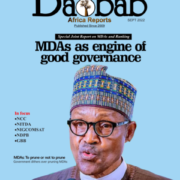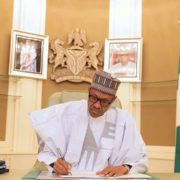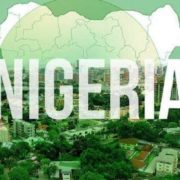Nigeria’s energy sector has been undergoing a massive transformation in recent years as the government actively privatizes new generation and transmission projects. Although Nigeria has a growing population of more than 179 million, it generates less than 4,000 megawatts (MW) annually. As a result, scarcity of sufficient and reliable electricity is severely constraining economic growth and development. In order to combat and correct this issue, the Federal Government of Nigeria (FGN) is implementing a three-phase liberalization process. In the first phase, five generation and ten distribution companies (linked to the country’s main power holding company, PHCN) have been privatized since 2013. In addition, the Niger Delta Power Holding Company (NDPHC) is privatizing ten newly built generation plants.


Sources: US Energy Information Administration, International Energy Statistics, 2010; NERC, Multi-Year Tariff Order (MYTO) II, 2012-2017
These privatized PHCN generation companies are contractually obligated to increase generation for each plant over the next five years, achieving 6,000 MW of installed capacity. The government estimates the privatized NDPHC plants will generate an additional 5,445 MW. Finally, an additional 2,000 MW increase will stem from investments by new independent power producers. To help achieve these ambitious goals, the FGN is focused on sustaining a stable investment climate for private sector participation in the sector, expanding transmission and distribution networks to deliver power to customers, maintaining a creditworthy off-taker of electricity, establishing cost-reflective tariffs, and reducing inefficiency in support of affordable end-user tariffs.
As of early 2015, FGN instructed the electricity market to operate in accordance with established contracts including the Power Purchase Agreements (PPA) for generators and Vesting Contracts for the delivery of power to distribution companies. Each market member will pay or receive according to what they receive from or supply to the system, a critical step to building investor confidence in the sector.
Power Africa support
In Nigeria, Power Africa supports the development of the energy sector through credit enhancement, grants, technical assistance, and investment promotion efforts. Through these measures, Power Africa is working to mobilize affordable and long term financing to support capital and operational expenditure requirements for successor generation and distribution companies to accelerate electricity market development. Furthermore, Power Africa is helping to advance major infrastructure investments, promote U.S. technological solutions, and strengthen Nigerian national systems through targeted technical assistance of national organizations dedicated to improving electricity procurement and regulatory functions.
Lending through Power Africa is delivered across a variety of recipients, including agro-processors, healthcare facilities and households willing to retrofit facilities, and companies willing to establish and maintain plants to generate clean energy. Late in 2014, Power Africa, in association with Guarantco, partnered with Standard Chartered Bank to make critical lending available to the privatized discos and gencos for capital expenditures to reduce energy losses and improve operational efficiencies.
The U.S. Government’s Power Africa agencies also are providing support for trade missions and engaging in outreach efforts for American companies interested in investment opportunities in Nigeria. Since the Power Africa launch, the Initiative has also provided political risk insurance for project loans and engaged in risk mitigation efforts in coordination with the FGN. In partnership with General Electric, the U.S. African Development Foundation and others, Power Africa has awarded seven $100,000 grants to entrepreneurs for innovative, off-grid energy projects in Nigeria.
Power Africa partners in Nigeria include Heirs Holding, UBA Capital, General Electric, Africa Finance Corporation, Africa Development Bank , Standard Chartered Bank, Symbion Power, Africa Infrastructure Investment Managers, Nigeria Solar Capital Partners, America Capital Energy and Infrastructure, and the World Bank.
| Highlighted Transactions | ||||||
| Name | MW | Type of Transaction | Value (USD Million) | Timeline | Power Africa Support | GON Actions |
| Power Holding Company of Nigeria Successor Companies, 10 Distribution and 5 Generation | 2121 MW | Short term Capital Expenditure Facility for contractors to the distribution companies Long term Capital Expenditure facility for the distribution companies |
$90 million $1 billion |
Q4 2014 | * USAID participated in the evaluation of technical bids * Reviewed the Industry Agreements signed by the investors * Credit Enhancement facility to Commercial Banks for Short term Capital Expenditure * Credit Enhancement to unlock Long term capital through Pension and Insurance for Distribution Companies. * Trade Mission for equipment sourcing |
* Political will in support of the liberalization programme * Created an enabling environment to encourage private sector participation * Multi Year Tariff Order review version 2.1 released* produced policy to increase rural access to modern energy * Diversification of primary energy sources |
| Azura — Edo Energy | 450 MW | Green Field Open Cycle Gas to Power Project | $1 billion | * Expected Financial Close Q4 2015 * Construction 2015-2018 * Operational 2018 |
* USAID provided technical support to the Nigeria Bulk Electricity Trading Company (NBET), which led to the successful negotiation of the Power Purchase Agreement (PPA) and the Put Call Options Agreement (PCOA) for Azura Energy * The capitalization of NBET, a well- structured PPA, the availability of the PCOA and other risk mitigation measures from the World Bank, unlocked lenders investment for the project |
* Capitalization of the Bulk Trader * Approval of the Put Call Options Agreement * Approval of the Power Purchase Agreement |
| JBS Wind Power | 100MW | Green field Wind Power Project | $300 million | * Finalize negotiation of PPA Q2 2016 * Commence negotiation of PCOA Q2 2016 * Financial Close Q2 2016 * Construction starts Q3 2016 for completion in 2018 |
* USAID drafted form PPA and PCOA for Wind Project * USAID providing Technical Assistance to negotiate the PPA and PCOA |
* Nominated project to Ministry of Finance for the African Development Bank Partial Risk Guarantee * Approval of PPA when due * Approval of PCOA when due |
Leveraging partnerships to increase access to power in Sub-Saharan Africa
Power Africa, an initiative led by the U.S. Government, aims to increase the number of people in sub-Saharan Africa who have access to power. Launched by President Obama in 2013, Power Africa works with African governments and private sector partners to remove barriers that impede sustainable energy development in sub-Saharan Africa and unlock the substantial wind, solar, hydropower, natural gas, biomass, and geothermal resources on the continent.
Power Africa’s goals are to increase electricity access by adding more than 30,000 megawatts of cleaner, more efficient electricity generation capacity and 60 million new home and business connections across sub-Saharan Africa. Power Africa also includes the Beyond the Grid sub-initiative, which works to expand rural electrification and access to small scale and off-grid technology.
A new operating model: Mobilizing partnerships & investments in energy
A unique private sector led model, Power Africa draws on the combined expertise and abilities of 12 U.S. Government agencies, the World Bank Group, the African Development Bank, the Government of Sweden, African governments, and private sector partners. Power Africa’s “Toolbox” approach offers a range of resources and tools to advance key projects on the electricity grid, or beyond it. By leveraging U.S. expertise in energy technology and regulatory reform, combined with U.S. Government and private sector financial resources, Power Africa helps drive quick-impact interventions and policy reforms to push for sustainable energy development.
To date, Power Africa has leveraged more than $20 billion in commitments from the private sector for new on- and off-grid projects in sub-Saharan Africa. The U.S. Government is committed to providing more than $7 billion in financial support, loan guarantees, and technical support. As a result, every dollar the U.S. Government has committed to Power Africa leverages almost three dollars in private sector investment commitments. Additionally, the African Development Bank, the World Bank Group and the Swedish Government have collectively committed an additional $9 billion in support of Power Africa.
Power Africa Contact for Nigeria: Matthew Burton, Power Africa Country Team Leader, Email:[email protected]. http://www.usaid.gov/powerafrica/partners/african-governments/nigeria






















